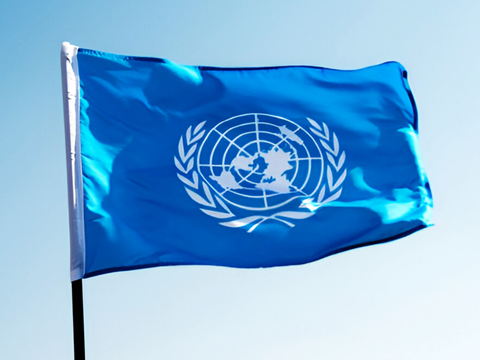
Ahead of the fifth session of the Intergovernmental Negotiating Committee (INC-5) next month, the Business Coalition for a Global Plastics Treaty has published an open letter calling on governments to address plastic pollution at a global level.
Addressed to Heads of State, members of the organization state that an “ambitious treaty with binding global rules” is a chance to harmonize the policy landscape, strengthen national legislation and help businesses scale proven solutions for priority sectors such as packaging. They add that global rules can also help governments by reducing long-term public spending on waste management and mobilizing investment to create jobs across the value chain.
“A treaty based on voluntary measures alone risks delaying action by decades,” the letter says, claiming this would create further fragmentation in the regulatory landscape for business, leading to increased cost and complexity.
The CEOs who have signed the letter include Antoine de Saint-Affrique of Danone, Barbara Martin Coppola of DECATHLON, Laurent Freixe of Nestlé, Samuel Sigrist of SIG and Tom Szaky of Terracycle.
The members state that for businesses to implement an effective treaty, agreement is needed at INC-5 on global criteria and lists that enable the restriction and phase out of chemicals of concern, as well as problematic and avoidable plastic products; sector-specific approaches and global criteria for circular product design of plastic products, such as packaging; common definitions and key principles for the effective implementation of Extended Producer Responsibility (EPR) schemes; and a strong mandate for the governing body to strengthen the agreement over time.
The business leaders acknowledge that there is already “significant alignment” on these topics through voluntary industry initiatives – however, they caution that “voluntary efforts alone are not enough to address plastic pollution at scale” and conclude that they are prepared to “work together with policymakers across the world on this critical task”.
In May we spoke to Erin Simon, vice president and head of Plastic Waste and Business at WWF, about the positive developments and outstanding disagreements observed at INC-4. While progress was made on measures including lists of polymers and chemicals of concern and a mandate for intersessional work, Simons highlighted the omission of the reduction of primary plastic polymers.
More recently, WWF commended the High Ambition Coalition to End Plastic Pollution (HAC)’s INC-5 Ministerial Statement, pushing for an ‘ambitious and effective’ treaty with legally binding, global rules to end plastic pollution by 2040 – and states that it will hold the Coalition to these commitments at INC-5 in November. According to WWF, the HAC makes up a majority of plastic consumption across the world, consisting of over 60 countries including Japan, Australia, Rwanda and Kenya.
If you liked this story, you might also enjoy:
The ultimate guide to the Packaging and Packaging Waste Regulation in 2024
How are the top brands progressing on packaging sustainability?
Sustainable Innovation Report 2024: Current trends and future priorities
Everything you need to know about global plastic sustainability regulation














No comments yet